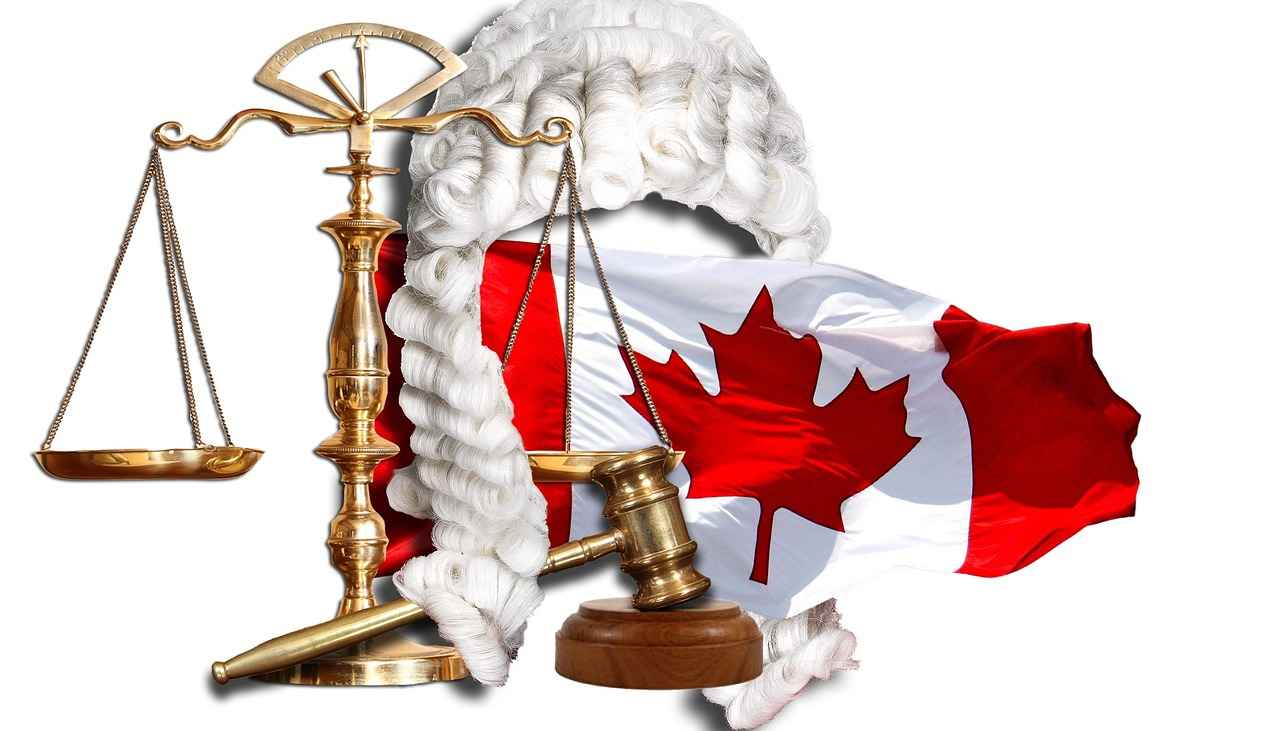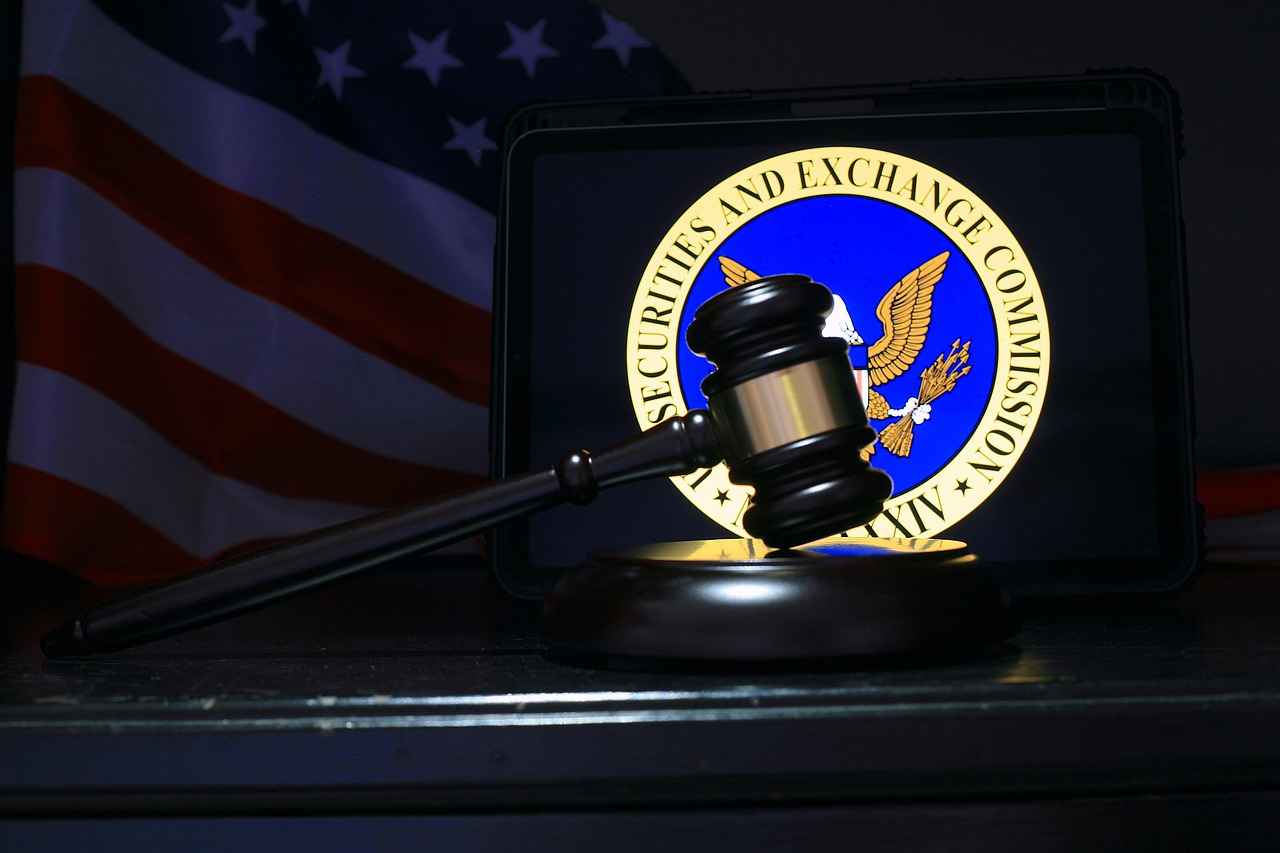When faced with legal challenges, it is crucial to understand the landscape of common legal cases in the United States. This article delves into various types of legal cases, offering expert advice on how to find qualified attorneys in New Orleans and other major cities.
Understanding Personal Injury Cases
Personal injury cases arise when individuals sustain harm due to another party’s negligence. Common scenarios include car accidents, slips and falls, and workplace injuries. To find a skilled personal injury attorney, consider the following:
- Look for attorneys with a proven track record in personal injury cases.
- Check for client reviews and testimonials online.
- Ensure they offer a free consultation to discuss your case.
Medical Malpractice: What You Need to Know
Medical malpractice occurs when a healthcare professional fails to provide the standard of care, resulting in patient harm. To find a qualified medical malpractice attorney in New Orleans:
- Seek referrals from trusted healthcare professionals.
- Verify the attorney’s experience in handling similar cases.
- Look for board certifications in medical malpractice law.
Breach of Contract: Common Issues and Solutions
Breach of contract cases involve disputes over legally binding agreements. These disputes can arise in various contexts, including business transactions and personal agreements. When searching for an attorney:
- Choose someone with expertise in contract law.
- Examine their success rate in resolving breach of contract cases.
- Discuss their approach to negotiation and litigation.
Property Disputes: Navigating Legal Complexities
Property disputes can involve boundary lines, easements, and landlord-tenant disagreements. To effectively resolve these matters, consider hiring an attorney who:
- Specializes in real estate law.
- Has experience with local property laws and regulations.
- Offers clear communication regarding your rights and options.
Landlord-Tenant Disputes: Rights and Responsibilities
Landlord-tenant disputes often arise over lease agreements and eviction processes. When seeking legal representation:
- Look for attorneys who focus on landlord-tenant law.
- Check for experience in handling eviction cases.
- Ensure they understand local housing laws and tenant rights.
Defamation: Understanding Libel and Slander
Defamation cases involve false statements that harm an individual’s reputation. To navigate these complex legal waters, find an attorney who:
- Has experience in media law and defamation cases.
- Can provide examples of past successful outcomes.
- Understands the nuances of libel and slander laws.
Employment Disputes: Employee Rights and Protections
Employment disputes can arise from wrongful termination and discrimination. To protect your rights:
- Seek attorneys who specialize in employment law.
- Look for those with a strong understanding of workplace rights.
- Check their reputation in handling employment-related cases.
Product Liability: Holding Manufacturers Accountable
Product liability cases involve injuries caused by defective products. When searching for a qualified attorney:
- Choose someone with experience in product liability law.
- Verify their success in similar cases.
- Look for attorneys who understand consumer protection laws.
Wrongful Death: Seeking Justice for Lost Loved Ones
Wrongful death cases arise when negligence leads to a person’s death. To find an empathetic attorney:
- Seek referrals from trusted individuals.
- Look for attorneys with experience in wrongful death cases.
- Ensure they demonstrate compassion and understanding during consultations.
Class Action Lawsuits: Collective Legal Action
Class action lawsuits allow groups of individuals to sue for damages collectively. When looking for an attorney:
- Find those who specialize in class action litigation.
- Check their track record in handling class action cases.
- Understand their approach to representing large groups of clients.
Criminal Defense: Navigating Assault and Battery Charges
Assault and battery charges can have severe consequences. To find a skilled criminal defense attorney:
- Look for attorneys with experience in criminal law.
- Check their success rate in similar cases.
- Discuss their strategy for defending against assault charges.
Cybercrime: Protecting Your Rights in a Digital Age
Cybercrime encompasses a range of illegal activities conducted online. When searching for an attorney:
- Choose someone with expertise in cyber law.
- Look for experience in handling digital evidence.
- Ensure they stay updated on evolving cybercrime laws.
Family Law: Divorce and Custody Matters
Family law encompasses various issues, including divorce and child custody. To navigate these sensitive matters:
- Seek attorneys who specialize in family law.
- Look for those with experience in custody disputes.
- Ensure they provide a supportive environment during consultations.

Understanding Personal Injury Cases
Personal injury cases are a significant aspect of the legal landscape in the United States, arising when individuals suffer harm due to the negligence of another party. These cases can encompass a variety of incidents, including but not limited to car accidents, slips and falls, and workplace injuries. Understanding the nuances of personal injury law is essential for anyone looking to navigate this complex area effectively.
In a personal injury case, the injured party, often referred to as the plaintiff, must prove that the other party, known as the defendant, acted negligently. Negligence is typically defined as a failure to exercise the care that a reasonably prudent person would under similar circumstances. This can include actions such as distracted driving, inadequate safety measures, or failure to maintain a safe environment.
One of the most common types of personal injury cases involves automobile accidents. In these situations, the plaintiff must demonstrate that the defendant’s actions—such as speeding or driving under the influence—directly caused the accident and resulting injuries. Victims of car accidents may seek compensation for medical expenses, lost wages, and pain and suffering.
Another prevalent category includes slip and fall cases, which often occur in public spaces or private properties. Property owners have a legal obligation to maintain safe conditions. If they fail to address hazards, such as wet floors or uneven surfaces, they may be held liable for any injuries that occur as a result.
Workplace injuries also fall under personal injury law, where employees can seek compensation for accidents that occur on the job. This can include incidents involving machinery, falls, or exposure to hazardous materials. Employers are typically required to carry workers’ compensation insurance, which provides benefits to injured employees without the need for litigation.
To pursue a personal injury claim, it is often advisable to consult with a qualified attorney who specializes in this area of law. A skilled attorney can help evaluate the merits of your case, gather necessary evidence, and negotiate with insurance companies on your behalf. When searching for a personal injury lawyer, consider the following:
- Experience: Look for attorneys who have a proven track record in personal injury cases.
- Reputation: Check online reviews and testimonials to gauge the attorney’s reputation.
- Communication: Choose an attorney who communicates clearly and promptly.
- Fee Structure: Most personal injury attorneys work on a contingency fee basis, meaning they only get paid if you win your case.
In summary, personal injury cases are multifaceted and require a thorough understanding of the law. Whether you are involved in a car accident, a slip and fall, or a workplace injury, having the right legal representation can significantly impact the outcome of your case. By taking the time to find a qualified attorney, you can ensure that your rights are protected and that you receive the compensation you deserve.

Medical Malpractice: What You Need to Know
Medical malpractice is a critical area of law that addresses situations where healthcare professionals fail to deliver the appropriate standard of care, leading to significant harm to patients. This complex field encompasses various scenarios, from surgical errors to misdiagnoses, and understanding its intricacies is essential for effective legal representation.
In the United States, medical malpractice claims often arise from negligence, which can manifest in several ways. For instance, a doctor might fail to diagnose a serious condition, leading to delayed treatment and worsened health outcomes. Alternatively, a surgeon may make a mistake during an operation, causing unnecessary complications. These situations highlight the importance of establishing a clear standard of care that healthcare providers are expected to meet.
To successfully navigate a medical malpractice case, it is crucial to prove that the healthcare provider’s actions deviated from accepted medical practices and that this deviation directly resulted in harm to the patient. This often requires expert testimony from other medical professionals who can attest to the standard of care in similar situations.
When seeking legal representation for a medical malpractice case, individuals should consider several factors:
- Experience: Look for attorneys who specialize in medical malpractice and have a proven track record of handling similar cases.
- Reputation: Research online reviews and testimonials to gauge the attorney’s reputation within the community.
- Credentials: Verify the attorney’s qualifications, including their education, certifications, and any memberships in professional organizations.
- Consultation: Many attorneys offer free initial consultations. Use this opportunity to assess their knowledge and approach to your case.
Moreover, be cautious of red flags when hiring a medical malpractice attorney. If an attorney guarantees a specific outcome or seems overly eager to take your case without thoroughly evaluating it, these may be signs of unprofessionalism. Additionally, ensure that the attorney is transparent about their fees and any potential costs associated with your case.
In major metropolitan areas such as New York City, Los Angeles, and Chicago, finding the right medical malpractice attorney can be particularly competitive. Utilize legal directories, state bar association websites, and referral services to identify qualified candidates. Networking within local health care communities can also yield valuable recommendations.
Ultimately, understanding the nuances of medical malpractice law and knowing how to find a qualified attorney can significantly impact the outcome of your case. By taking the time to research and consult with potential legal representatives, you can ensure that your rights are protected and that you receive the compensation you deserve for any harm suffered due to medical negligence.

Breach of Contract: Common Issues and Solutions
Breach of contract cases are a significant aspect of the legal landscape, often arising from disputes over the terms of a legally binding agreement. These disputes can occur in various contexts, including business transactions and personal agreements. Understanding the nuances of these cases is essential for both parties involved, as the outcomes can significantly impact their rights and obligations.
At its core, a breach of contract occurs when one party fails to fulfill their obligations as outlined in the agreement. This can manifest in several ways, such as:
- Failure to perform: One party does not complete their part of the deal.
- Delayed performance: Obligations are met but not within the agreed timeframe.
- Substandard performance: The work completed does not meet the specified standards.
- Refusal to perform: One party outright refuses to fulfill their contractual duties.
When faced with a breach of contract, it is crucial to first assess the situation carefully. Here are some common issues that can arise:
- Ambiguity in contract terms: Vague language can lead to differing interpretations of obligations.
- Unforeseen circumstances: Events such as natural disasters may hinder performance, raising questions about liability.
- Misrepresentation: One party may have been misled about essential terms, affecting their decision to enter the contract.
To navigate these complexities, seeking legal counsel is often advisable. Here are steps to find the right attorney:
- Research credentials: Look for attorneys with experience in contract law and a track record of handling similar cases.
- Check reviews and testimonials: Online platforms like Avvo and Martindale-Hubbell can provide insights into an attorney’s reputation.
- Consult local bar associations: They can offer referrals and confirm the attorney’s standing in the community.
- Schedule consultations: Many attorneys offer free initial consultations, allowing you to gauge their expertise and approach.
It is also vital to be aware of red flags when hiring an attorney:
- Excessive fees: Be wary of attorneys who demand high upfront fees without a clear outline of services.
- Poor communication: If an attorney is difficult to reach or unresponsive, it may indicate future issues.
- Lack of experience: Ensure the attorney has specific experience in breach of contract cases.
In conclusion, breach of contract cases can be intricate and challenging. By understanding common issues and knowing how to find qualified legal representation, individuals can better navigate these disputes. Whether you are a business owner or an individual involved in a personal agreement, taking the right steps can lead to a more favorable resolution.

Property Disputes: Navigating Legal Complexities
Property disputes can be intricate and emotionally charged, often involving significant financial stakes. These disputes may arise over a variety of issues, including boundary lines, easements, and landlord-tenant disagreements. Understanding the nuances of these matters is crucial for anyone facing a property-related legal issue.
One of the most common types of property disputes involves boundary lines. These disputes can occur when two property owners disagree about the exact location of their property lines. This might stem from unclear documentation, historical changes to the land, or even disputes over fences and landscaping. In such cases, it is essential to have a qualified attorney who specializes in property law. They can help gather the necessary evidence, such as surveys and title documents, to clarify property boundaries.
Another frequent issue is related to easements. An easement grants one party the right to use a portion of another party’s property for a specific purpose, such as accessing a road or utility maintenance. Disputes can arise when one party feels that their rights are being infringed upon or when the terms of the easement are not being followed. Legal representation is vital in these situations to ensure that rights are upheld and that any agreements are enforced correctly.
Landlord-tenant disagreements are also prevalent and can cover a range of issues from lease agreements to eviction processes. Tenants may find themselves in disputes over the condition of the property, maintenance responsibilities, or the return of security deposits. On the other hand, landlords might face issues related to non-payment of rent or property damage. Understanding both parties’ rights and responsibilities is essential, and having a knowledgeable attorney can facilitate a resolution that respects the law and protects your interests.
When navigating property disputes, it’s crucial to seek legal representation that is not only experienced but also familiar with local laws and regulations. Here are some tips for finding the right attorney:
- Research Credentials: Look for attorneys who specialize in real estate or property law. Check their education, experience, and any relevant certifications.
- Read Reviews: Online reviews and testimonials can provide insight into an attorney’s reputation and effectiveness. Websites like Avvo and Yelp are good places to start.
- Consultation: Many attorneys offer free consultations. Use this opportunity to gauge their understanding of your specific issue and their approach to resolving it.
- Ask About Fees: Understand the attorney’s fee structure. Some may charge hourly rates, while others might work on a contingency basis. Make sure you are comfortable with the payment arrangement before proceeding.
- Trust Your Instincts: It’s important to feel comfortable with your attorney. Trust your instincts about their ability to represent your interests effectively.
In conclusion, property disputes can be complex and fraught with tension. Having the right legal representation can make a significant difference in the outcome of your case. Whether it’s a boundary line disagreement, an easement issue, or a landlord-tenant dispute, understanding your rights and responsibilities is essential. By following the tips outlined above, you can find a qualified attorney who will advocate for you and help navigate the legal complexities involved in property disputes.

Landlord-Tenant Disputes: Rights and Responsibilities
Landlord-tenant disputes are a common occurrence in the rental market, often leading to significant legal conflicts. These disputes can arise from various issues, including lease agreements, eviction processes, and maintenance responsibilities. Understanding your rights and responsibilities as both a landlord and a tenant is crucial for resolving these conflicts amicably and legally.
In many cases, disputes begin with misunderstandings regarding the terms of a lease agreement. Tenants may feel that their landlord is not fulfilling their obligations, such as providing necessary repairs, while landlords may believe tenants are violating lease terms by not paying rent or causing damage to the property. It is essential for both parties to carefully review the lease agreement, as it outlines the rights and responsibilities of each party.
Eviction processes can also lead to disputes. Landlords must follow specific legal procedures to evict a tenant, which often requires providing written notice and a valid reason for the eviction, such as non-payment of rent or lease violations. Tenants should be aware of their rights during this process, including the right to contest the eviction in court. It is advisable for tenants facing eviction to seek legal counsel to understand their options and protect their rights.
Maintenance issues are another common source of conflict. Tenants have the right to live in a safe and habitable environment, which includes prompt repairs for plumbing, heating, and electrical issues. Landlords, on the other hand, are responsible for ensuring that the property is well-maintained and compliant with housing codes. If a landlord fails to address maintenance issues, tenants may have grounds for legal action, including withholding rent until repairs are made.
To effectively resolve landlord-tenant disputes, both parties should consider seeking legal representation. Finding the right attorney can make a significant difference in the outcome of a case. Here are some tips for finding a qualified attorney:
- Research Local Attorneys: Start by looking for attorneys who specialize in landlord-tenant law in your area. Websites like Avvo and FindLaw can provide listings and reviews of local attorneys.
- Check Credentials: Look for attorneys with experience in landlord-tenant disputes. Check their education, years of practice, and any relevant certifications.
- Read Reviews: Online reviews can provide insights into an attorney’s reputation and success rate. Look for patterns in feedback regarding communication and case outcomes.
- Consultations: Many attorneys offer free consultations. Use this opportunity to discuss your case and evaluate whether the attorney is a good fit for your needs.
- Ask Questions: During the consultation, ask about their experience with similar cases, their approach to legal representation, and their fee structure.
It is also important to be aware of red flags when hiring an attorney. Be cautious of attorneys who:
- Promise guaranteed outcomes, as no attorney can guarantee a specific result.
- Pressure you to make quick decisions without giving you time to consider your options.
- Have poor communication skills or do not respond promptly to your inquiries.
Understanding your rights and responsibilities in landlord-tenant relationships is vital for preventing disputes and ensuring a smooth rental experience. By being proactive and informed, you can navigate these legal waters more effectively. If you find yourself in a dispute, seeking qualified legal representation can help protect your interests and achieve a favorable resolution.

Defamation: Understanding Libel and Slander
Defamation is a legal term that encompasses both libel and slander, referring to false statements that can significantly damage an individual’s reputation. In today’s digital age, where information travels rapidly, understanding the intricacies of these two forms of defamation is crucial for anyone who might find themselves accused of or victimized by such claims.
What is Libel?
Libel refers to defamatory statements that are made in a written or published format. This can include articles, books, online posts, or any other medium that conveys information in a tangible form. For a statement to be considered libelous, it generally must meet several criteria:
- The statement must be false.
- It must be presented as a fact, not opinion.
- The statement must be made with a degree of fault, such as negligence or actual malice.
- The statement must cause harm to the individual’s reputation.
What is Slander?
Slander, on the other hand, involves spoken defamatory statements. This can occur in conversations, speeches, or any verbal communication. Like libel, slanderous statements must also fulfill specific criteria to be actionable:
- The statement must be false.
- It must be presented as a fact.
- There must be proof of fault.
- The statement must result in reputational harm.
Proving Defamation
In both libel and slander cases, the burden of proof lies with the plaintiff, who must demonstrate that the statement was not only false but also harmful. In cases involving public figures, the standard becomes even higher, requiring proof of actual malice—that is, the defendant knew the statement was false or acted with reckless disregard for the truth.
Finding a Qualified Attorney for Defamation Cases
If you find yourself involved in a defamation case, whether as the plaintiff or defendant, it is vital to seek legal representation from an attorney experienced in this area of law. Here are some practical steps to find the right lawyer:
- Research Online: Utilize legal directories such as Avvo, FindLaw, or Martindale-Hubbell to find attorneys specializing in defamation cases.
- Check Credentials: Look for attorneys with a strong background in media law, First Amendment rights, or personal injury law, as they often handle defamation cases.
- Read Reviews: Client testimonials can provide insight into an attorney’s effectiveness and professionalism.
- Consult Multiple Attorneys: Meeting with several lawyers can help you gauge their expertise and approach to your specific case.
- Ask About Fees: Understand the attorney’s fee structure, whether it’s hourly or contingency-based, to ensure it aligns with your financial situation.
Red Flags to Avoid
When selecting a lawyer, be wary of certain red flags that may indicate a lack of professionalism or competence:
- Lack of Experience: Avoid attorneys who do not have a proven track record in handling defamation cases.
- Poor Communication: If an attorney is unresponsive or fails to communicate clearly, it may lead to complications down the line.
- High Pressure Sales Tactics: Be cautious of lawyers who pressure you to sign contracts or make quick decisions.
In summary, understanding the differences between libel and slander is essential for navigating defamation cases. By knowing how to find a qualified attorney and recognizing potential red flags, you can better protect your rights and reputation in the legal system.

Employment Disputes: Employee Rights and Protections
Employment disputes are a significant area of concern for both employees and employers. These disputes can arise from various issues including wrongful termination, discrimination, and wage disputes. Understanding your rights as an employee and how to find a qualified employment attorney is essential for protecting those rights.
When it comes to wrongful termination, it is crucial to understand that an employee cannot be dismissed for illegal reasons, such as discrimination based on race, gender, or disability. If you believe you have been wrongfully terminated, documenting your case meticulously is vital. This includes keeping records of your employment history, any communications with your employer regarding your termination, and any relevant performance reviews.
In cases of discrimination, it is important to know that federal and state laws protect employees from being treated unfairly based on characteristics such as age, gender, race, and religion. If you experience discrimination, seek an attorney who specializes in employment law. They can help you navigate the complex legal landscape and advocate for your rights.
Wage disputes often arise when employees are not compensated fairly for their work. This includes issues such as unpaid overtime, misclassification of employees, and wage theft. To resolve these disputes, it is advisable to gather evidence such as pay stubs, time sheets, and any correspondence with your employer regarding your wages. An experienced employment attorney can assist you in filing claims with the appropriate labor boards or pursuing litigation if necessary.
Finding a qualified employment attorney is crucial for effective representation. Here are some practical steps to help you in your search:
- Research and Referrals: Start by asking friends or family for recommendations. Online platforms like Avvo or FindLaw can provide reviews and ratings of attorneys in your area.
- Check Credentials: Look for attorneys who specialize in employment law and have experience handling cases similar to yours. Verify their education, bar association membership, and any certifications.
- Initial Consultations: Many attorneys offer free initial consultations. Use this opportunity to discuss your case, ask about their experience, and evaluate their communication style.
- Red Flags: Be cautious of attorneys who guarantee outcomes, pressure you to sign contracts quickly, or lack transparency about their fees.
In metropolitan areas like New York City, Los Angeles, and Chicago, the legal landscape can be competitive. Utilize local bar associations or legal aid organizations that can connect you with reputable attorneys. Additionally, consider the attorney’s track record in settlements or verdicts, as well as their familiarity with local labor laws.
Ultimately, understanding your rights and seeking competent legal representation can significantly impact the outcome of employment disputes. Whether you are facing wrongful termination, discrimination, or wage-related issues, taking proactive steps to find the right attorney can help safeguard your interests and ensure you receive the justice you deserve.

Product Liability: Holding Manufacturers Accountable
Product liability is a crucial aspect of consumer protection law, focusing on the responsibility of manufacturers and sellers for injuries caused by defective products. These cases can arise from a variety of issues, including design defects, manufacturing defects, and marketing defects, such as inadequate warnings or instructions. Understanding the intricacies of product liability can significantly impact your ability to seek justice and compensation.
Types of Product Defects
- Design Defects: These occur when a product is inherently dangerous due to its design. Even if manufactured correctly, the product poses risks that could have been avoided with a different design.
- Manufacturing Defects: These defects arise during the production process, resulting in a product that deviates from its intended design, making it unsafe for consumer use.
- Marketing Defects: This type of defect involves misleading advertising or insufficient instructions and warnings, which can lead to consumer misuse and subsequent injuries.
Legal Standards in Product Liability Cases
To succeed in a product liability case, plaintiffs typically must prove that the product was defective, that the defect caused their injury, and that they were using the product as intended. Different jurisdictions may have varying legal standards, but the essential elements remain consistent. It is crucial to gather evidence, including medical records, photographs of the product, and witness statements, to support your claim.
Finding an Experienced Product Liability Attorney
When searching for a qualified attorney in product liability cases, consider the following strategies:
- Specialization: Look for attorneys who specialize in personal injury or product liability law. Their focused experience will provide you with a better chance of a favorable outcome.
- Reputation: Research potential attorneys through online reviews, testimonials, and ratings on platforms like Avvo or Martindale-Hubbell. A strong reputation often correlates with successful case outcomes.
- Consultations: Many attorneys offer free initial consultations. Use this opportunity to discuss your case and gauge their expertise and approach.
- Track Record: Inquire about the attorney’s past cases and outcomes related to product liability. A proven track record can indicate their capability in handling similar cases.
Red Flags to Avoid
- Lack of Experience: Be cautious of attorneys who lack experience in product liability cases. Complexities in these cases require a deep understanding of both legal and technical aspects.
- High Fees Without Clear Value: While quality legal representation may come at a cost, be wary of attorneys who demand exorbitant fees without a clear explanation of the services they provide.
- Poor Communication: An attorney’s ability to communicate effectively is crucial. If they are unresponsive or unclear during initial consultations, it may indicate future issues.
Conclusion
Product liability cases can be intricate and challenging, but with the right legal representation, victims can hold manufacturers accountable for their negligence. By understanding the types of defects, legal standards, and the process of finding a qualified attorney, individuals can navigate these cases more effectively. Make sure to conduct thorough research and choose an attorney who not only has the expertise but also aligns with your needs and expectations.

Wrongful Death: Seeking Justice for Lost Loved Ones
Wrongful death cases represent a tragic intersection of negligence and loss, occurring when an individual’s death is caused by the carelessness or malfeasance of another party. This can include scenarios such as fatal car accidents, medical malpractice, or workplace incidents. For families left behind, the emotional toll is immense, and the burden of navigating the legal system can be overwhelming. In these challenging times, seeking the assistance of a compassionate attorney becomes essential.
Families impacted by wrongful death can pursue compensation for various losses, including loss of companionship, funeral expenses, and lost income. The process involves complex legal proceedings, requiring an attorney who is not only knowledgeable but also sensitive to the family’s situation. When looking for a lawyer in this field, consider the following:
- Experience in Wrongful Death Cases: Seek attorneys who specialize in wrongful death claims and have a proven track record of successful outcomes.
- Reputation and Reviews: Online reviews and testimonials can provide insight into an attorney’s ability to handle sensitive cases effectively.
- Initial Consultation: Most reputable attorneys offer a free consultation. Use this opportunity to gauge their understanding of your case and their empathy towards your situation.
In metropolitan areas like New York City, Los Angeles, and Chicago, the sheer number of lawyers can be daunting. To navigate this landscape:
1. Use online legal directories such as Avvo or FindLaw.2. Ask for referrals from friends or family who have experienced similar legal issues.3. Check for bar association certifications or memberships, which can indicate a lawyer's commitment to their practice area.
Additionally, it is crucial to be aware of red flags when selecting a wrongful death attorney. Beware of lawyers who make unrealistic promises or who have poor communication skills. A reputable attorney should be transparent about the legal process, potential outcomes, and fees.
Ultimately, the journey through a wrongful death claim is not just about seeking financial compensation; it’s about honoring the memory of a loved one and finding a path towards healing. By choosing the right attorney, families can ensure they have a strong advocate in their corner, helping them navigate the complexities of the legal system during one of the most challenging times of their lives.

Class Action Lawsuits: Collective Legal Action
Class action lawsuits play a critical role in the U.S. legal system, enabling groups of individuals who have suffered similar harm to join forces and pursue legal action collectively. This process not only enhances the efficiency of the judicial system but also empowers individuals who might otherwise lack the resources to challenge larger entities, such as corporations or government agencies.
Understanding the intricacies of class action lawsuits is essential for anyone considering this route. These cases typically arise in scenarios where numerous individuals have been affected by a common issue, such as defective products, environmental disasters, or widespread fraud. The collective nature of these lawsuits allows for a unified approach, making it easier to present evidence and argue the case effectively.
To initiate a class action lawsuit, the first step involves demonstrating that the group of individuals shares common legal or factual issues. This is often referred to as “class certification.” The court must determine whether the case meets specific criteria, including:
- Numerosity: The class must be large enough that individual lawsuits would be impractical.
- Commonality: There must be common questions of law or fact among the class members.
- Typicality: The claims or defenses of the representative parties must be typical of the claims or defenses of the class.
- Adequacy: The representative parties must adequately protect the interests of the class.
Finding a specialized attorney who has experience in handling class action lawsuits is crucial for navigating this complex process. Here are some effective strategies for locating the right legal representation:
- Research Law Firms: Look for firms that specialize in class action litigation. Check their track record for successful outcomes in similar cases.
- Consult Legal Directories: Utilize platforms like Avvo, FindLaw, or Martindale-Hubbell to find attorneys with relevant experience and client reviews.
- Seek Referrals: Ask for recommendations from friends, family, or colleagues who may have experience with class action lawsuits.
- Interview Potential Attorneys: Schedule consultations with multiple attorneys to gauge their understanding of your case and their approach to litigation.
When evaluating potential attorneys, consider the following credentials:
- Experience: Look for attorneys who have handled class action cases successfully.
- Reputation: Research their standing within the legal community and check for any disciplinary actions.
- Communication Skills: Ensure they can explain complex legal concepts in a way that you understand.
- Fee Structure: Understand their billing practices; many class action attorneys work on a contingency fee basis, meaning they only get paid if you win.
Be wary of red flags when hiring an attorney for a class action lawsuit. Avoid attorneys who:
- Make unrealistic promises about the outcome of your case.
- Rush you into making decisions without fully explaining your options.
- Have a history of client complaints or negative reviews.
In summary, class action lawsuits provide a powerful avenue for individuals to seek justice collectively. By understanding the process and carefully selecting a qualified attorney, individuals can effectively navigate the complexities of these legal actions and enhance their chances of obtaining a favorable outcome.

Criminal Defense: Navigating Assault and Battery Charges
When faced with assault and battery charges, the legal repercussions can be significant, potentially leading to substantial fines, imprisonment, and a lasting criminal record. Understanding the nuances of these charges is essential for anyone involved in such a situation. This is where the expertise of a skilled criminal defense attorney becomes invaluable. Navigating the complexities of the criminal justice system requires not only legal knowledge but also strategic thinking and negotiation skills.
Assault typically refers to the act of threatening or attempting to cause physical harm to another individual, while battery involves the actual physical act of causing harm. The distinction between these two charges can significantly impact the legal strategy employed by the defense. For instance, if the defense can demonstrate that the alleged incident was a misunderstanding or that the accused acted in self-defense, the outcome may be favorably altered.
When searching for a qualified attorney in New Orleans or any metropolitan area, consider the following steps:
- Research Local Attorneys: Start by researching attorneys who specialize in criminal defense, particularly those with experience in handling assault and battery cases. Online directories, legal aid websites, and local bar association referrals can provide valuable leads.
- Check Credentials: Look for attorneys with relevant qualifications, such as memberships in professional organizations, board certifications in criminal law, and a solid track record in similar cases.
- Read Reviews: Client reviews and testimonials can offer insights into an attorney’s reputation and effectiveness. Pay attention to feedback regarding communication, case outcomes, and overall client satisfaction.
- Schedule Consultations: Many attorneys offer free initial consultations. Use this opportunity to discuss your case and evaluate the attorney’s approach, communication style, and willingness to address your concerns.
- Assess Experience: Inquire about the attorney’s experience with assault and battery cases specifically. An attorney with a proven track record in this area will be better equipped to navigate the legal landscape and advocate for your rights.
- Evaluate Fees: Understand the attorney’s fee structure. Some may charge hourly rates, while others might work on a contingency basis. Ensure you are comfortable with the financial arrangements before proceeding.
It’s also crucial to be aware of red flags when hiring a criminal defense attorney. Avoid attorneys who guarantee specific outcomes, as no lawyer can predict the results of a case with certainty. Additionally, be cautious of those who seem more interested in securing a quick fee rather than genuinely understanding your situation and providing personalized guidance.
In conclusion, when facing assault and battery charges, having a competent and experienced criminal defense attorney is essential for navigating the complexities of the legal system. By conducting thorough research, checking credentials, and being vigilant about potential red flags, individuals can find the right legal representation to effectively advocate for their rights and interests.

Cybercrime: Protecting Your Rights in a Digital Age
In today’s digital landscape, cybercrime has emerged as a significant threat, encompassing a variety of illegal activities carried out online. From identity theft to hacking and online fraud, the ramifications of such crimes can be devastating. With the rapid evolution of technology, the methods employed by cybercriminals are constantly changing, making it essential for individuals to stay informed and vigilant. When faced with the consequences of cybercrime, finding an attorney who specializes in this field is critical for a robust defense.
Cybercrime can manifest in numerous forms, including:
- Identity Theft: Unauthorized use of someone’s personal information for financial gain.
- Phishing Scams: Deceptive attempts to obtain sensitive information by masquerading as a trustworthy entity.
- Malware Attacks: Malicious software designed to disrupt, damage, or gain unauthorized access to computer systems.
- Online Harassment: Cyberbullying or stalking that occurs through digital platforms.
- Data Breaches: Unauthorized access to confidential data, often resulting in the exposure of personal information.
When searching for a qualified attorney to handle cybercrime cases, consider the following practical steps:
- Research Specialization: Look for attorneys who focus on cyber law or have significant experience in handling cybercrime cases. This specialization is crucial due to the unique legal challenges presented by digital offenses.
- Check Credentials: Verify the attorney’s educational background and professional experience. Membership in organizations such as the American Bar Association can indicate a commitment to staying updated on legal trends.
- Read Reviews: Online platforms like Avvo or Martindale-Hubbell provide client reviews and ratings that can help gauge an attorney’s reputation and effectiveness.
- Consultations: Many attorneys offer free initial consultations. Use this opportunity to discuss your case and assess the attorney’s communication style and understanding of cybercrime issues.
- Evaluate Communication: A good attorney should be able to explain complex legal concepts in understandable terms. Ensure they are approachable and responsive to your questions.
While hiring an attorney, be aware of potential red flags:
- Lack of Transparency: If an attorney is unwilling to discuss fees or provide clear billing practices, consider this a warning sign.
- Overpromising Results: Be cautious of attorneys who guarantee specific outcomes; legal cases, especially in cybercrime, can be unpredictable.
- Poor Communication: If you struggle to get in touch with the attorney or receive vague answers, it may indicate a lack of commitment to your case.
In conclusion, as cybercrime continues to evolve, having a knowledgeable attorney by your side is essential for protecting your rights. By following these guidelines and staying informed, you can find a qualified legal professional capable of navigating the complexities of cyber law and advocating for your interests in this digital age.

Family Law: Divorce and Custody Matters
Family law is a critical area of legal practice that addresses various issues affecting families, including divorce, child custody, and support obligations. The emotional and legal complexities involved in these matters can be overwhelming, making the choice of a knowledgeable attorney essential for navigating this challenging terrain.
When considering a divorce, individuals often face numerous questions regarding asset division, spousal support, and the implications for child custody arrangements. A skilled attorney will not only provide legal guidance but also offer emotional support during this tumultuous time. Look for attorneys who specialize in family law and have a proven track record of successful outcomes in divorce cases.
In terms of child custody, the stakes can be incredibly high. Parents may find themselves in contentious disputes over who will have primary custody or how visitation rights will be structured. A competent family law attorney will help clients understand the various custody arrangements available, including joint custody and sole custody, and advocate for their client’s best interests and the child’s welfare. It is crucial to find an attorney who is experienced in mediation and negotiation, as many custody disputes can be resolved outside of court through collaborative solutions.
Furthermore, child support is another significant aspect of family law that requires careful consideration. Laws governing child support can vary widely from state to state, and an attorney well-versed in local regulations can help ensure that the support amount is fair and reflective of the parents’ financial circumstances. They can also assist in modifying support agreements when there are changes in income or circumstances.
For those seeking to adopt, understanding the legal processes involved is essential. An attorney specializing in adoption can guide prospective parents through the intricate legal requirements, ensuring that all necessary paperwork is completed and that the adoption process is as smooth as possible.
When searching for a family law attorney, consider the following practical tips:
- Check Credentials: Look for attorneys who are members of the American Academy of Matrimonial Lawyers or similar organizations, as these credentials indicate specialization and expertise.
- Read Reviews: Online reviews and testimonials can provide insight into an attorney’s reputation and success rate.
- Consultation Meetings: Take advantage of initial consultations to gauge how comfortable you feel with the attorney and their approach to your case.
- Referrals: Seek recommendations from friends, family, or other professionals who have experience with family law cases.
It’s also important to be aware of red flags when hiring a family law attorney. If an attorney guarantees a specific outcome or lacks transparency about their fees, these could be signs to proceed with caution. Effective communication is key; choose an attorney who listens to your concerns and provides clear, honest feedback.
In conclusion, navigating family law matters requires not only legal expertise but also compassion and understanding. By finding a qualified attorney, individuals can better manage the emotional and legal challenges associated with divorce, custody, and support issues.
Frequently Asked Questions
- What types of legal cases can attorneys in New Orleans help with?
Attorneys in New Orleans can assist with a wide range of legal cases, including personal injury, medical malpractice, breach of contract, property disputes, and more. Essentially, if you have a legal issue, there’s likely an attorney who specializes in that area.
- How do I know if I need a lawyer for my case?
If you’re facing a legal issue that could impact your rights or finances, it’s wise to consult a lawyer. They can help you understand your options and provide guidance on whether legal representation is necessary.
- What should I look for when hiring an attorney?
When hiring an attorney, consider their experience, specialization, and client reviews. It’s also important to find someone you feel comfortable with, as a good attorney-client relationship can make a significant difference in your case.
- How much does it cost to hire a lawyer in New Orleans?
The cost of hiring a lawyer can vary widely depending on the type of case, the attorney’s experience, and their fee structure. Some may charge hourly rates, while others work on a contingency basis, meaning they only get paid if you win your case.
- Can I represent myself in court?
Yes, you can represent yourself in court, but it’s often not advisable. The legal system can be complex, and having an experienced attorney can significantly improve your chances of a favorable outcome.














